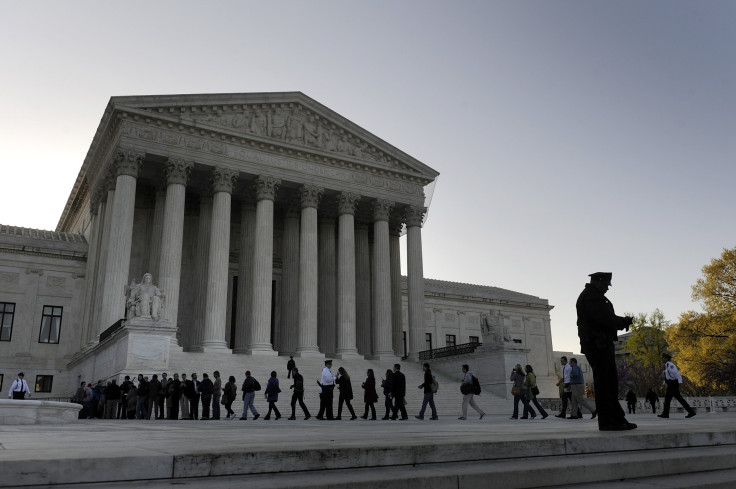Today In Voting Battles: Supreme Court To Weigh Arizona Citizenship Law

The U.S. Supreme Court has agreed to examine an Arizona law requiring state residents to present proof of citizenship before being allowed to vote.
Enacted via ballot initiative in 2004, the law requires evidence of citizenship -- such as a driver's license, a birth certificate or a passport -- for Arizonans seeking to register or cast a vote. Civil rights and Native American groups sued to block the measure from taking effect.
Battles over voting access have unfolded across the country this year as states have tightened voting laws. A Pennsylvania judge recently suspended a law requiring voters to present photo ID; the Obama and Romney campaigns have tangled over early voting measures in Ohio; and Florida has encountered pushback from a law limiting voter registration drives and a separate push to purge ineligible immigrant voters from the polls.
In many of these cases, proponents of the new voting requirements -- almost entirely Republicans -- have sparred with critics who say the new laws will disproportionately make voting more difficult for typically liberal-leaning groups like low-income Americans and minorities.
The Arizona law has generated similar criticism, but the arguments set to come before the Supreme Court are different. The recent volley of voting laws has drawn challenges on the ground that those laws are discriminatory, prompting the U.S. Justice Department to in many situations intervene by invoking safeguards against discrimination contained in the Voting Rights Act.
But the Arizona case comes down to a question of federal versus state powers. The federal National Voter Registration Act of 1993 permits voters to register using a form that asks them to check a box affirming they are U.S. citizens. An appeals court in San Francisco ruled earlier this year that the Arizona law requiring proof of citizenship conflicts with the National Voter Registration Act.
Arizona has become a focal point for an ongoing clash between the federal government and states over immigration law. In 2010, Arizona passed a tough new immigration law that became the impetus for similarly harsh immigration laws in several other states; the Justice Department sued, saying Arizona did not have the authority to claim some of the powers in the new law.
The Supreme Court partially sided with the federal government in June, striking down parts of the law that would have barred undocumented immigrants from seeking work or failing to carry documentation. But the court upheld a measure directing Arizona law enforcement officers to inquire about the immigration status of people they suspect to be in the country illegally.
--
© Copyright IBTimes 2024. All rights reserved.











